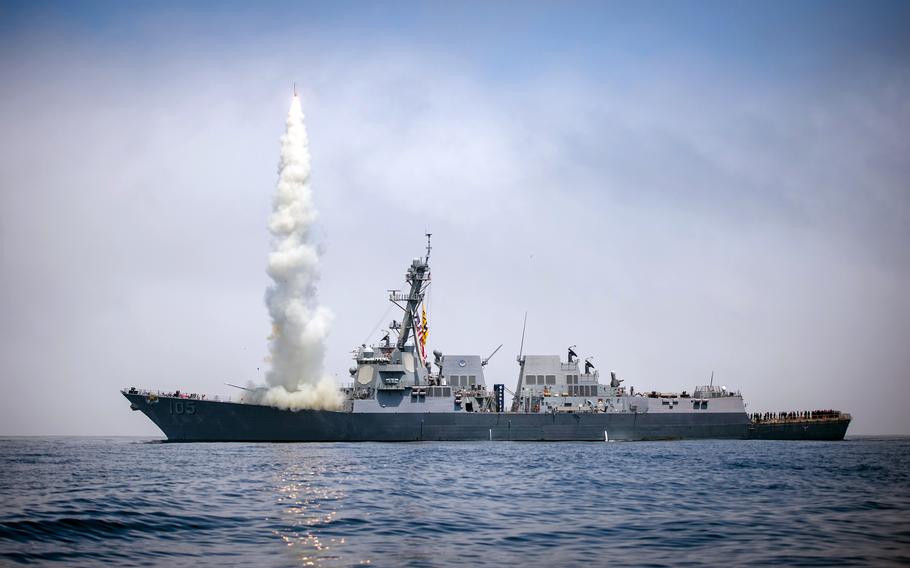
The guided-missile destroyer USS Dewey test-fires a Tomahawk missile somewhere in the Western Pacific, Aug. 17, 2018. (Devin Langer/U.S. Navy)
TOKYO — Japan will accelerate its acquisition of hundreds of Tomahawk missiles amid a worsening security environment, according to the nation’s Ministry of Defense.
The country — spending $51.4 billion on defense this fiscal year, which started in April — planned to buy 400 Tomahawks from the United States to develop counterstrike capabilities during fiscal years 2026 and 2027.
An increasingly severe security environment means the purchase is being brought forward to fiscal 2025, the ministry announced in a statement Thursday.
China has more than 1,900 ballistic missiles that can reach Japan, according to a 2022 Pentagon report on Beijing’s military capabilities.
“The Ministry of Defense and the Self-Defense Force are to strengthen their stand-off defense capabilities in order to prevent and eliminate invading forces to our country at an early stage and from a distance,” the ministry’s statement said.
To do this, Japan will purchase Block 4 Tomahawks before acquiring newer Block 5 missiles in fiscal years 2026 and 2027, the ministry said, adding that the deal must be approved by the U.S. lawmakers.
The acquisition of older missiles will likely reduce the cost of the procurement, the Kyodo news agency reported Thursday.
A Tomahawk can strike targets up to 1,000 miles away, according to its maker, Raytheon Technologies. The missiles are used by the U.S. Navy and can be launched from Aegis destroyers in the Japanese Maritime Self-Defense Force.
Japan is also considering early acquisition of domestically-produced stand-off missiles, the ministry said.
It earmarked $1.4 billion in the current budget to buy the missiles, but the acquisition of older missiles will likely reduce the cost, the Kyodo news agency reported Thursday.
Japan will buy 200 of the older Tomahawks between fiscal 2025 and 2027, Defense Minister Minoru Kihara told reporters after meeting Secretary of Defense Lloyd Austin at the Pentagon on Wednesday, the report said.
The accelerated acquisition will “contribute to the drastic strengthening of our country’s defense capabilities sooner,” Kihara said, according to Kyodo.